Assaults on media houses deeply alarming

We're deeply concerned about the ongoing threats to press freedom as epitomised by the spate of attacks, vandalism, hostile mobilisations, and inflammatory rhetoric targeting Prothom Alo and The Daily Star. This is a rude awakening for those who expected the culture of intimidation and repression against journalists to recede with the ouster of an autocratic regime—which, over 14 years, saw Bangladesh's position plummet 42 notches on the World Press Freedom Index. Instead, threats to the media appear to be intensifying in the current political climate, with coordinated campaigns aiming to stoke hostility against media houses that have long stood as pillars of independent journalism. This raises troubling questions about the future of the press in Bangladesh.
The campaign against Prothom Alo has been particularly vociferous since October 25, when a group announced plans to lay siege to its head office in Karwan Bazar but failed to mobilise. Later, starting last Thursday, protesters held sit-ins and caused disorder outside the office for several days, prompting law enforcement to intervene. On Monday, two of the paper's regional offices came under attack: masked individuals vandalised its signboard and windows in Bogura, while in Rajshahi, a group attempted to break into its office, destroyed its signboard, and burned copies of Prothom Alo and The Daily Star. Hostile gatherings against both papers were also reported in Chattogram, Sylhet, Barishal, Chandpur, Munshiganj, and at Savar's Jahangirnagar University. On Friday, a group also demonstrated in front of The Daily Star's head office.
While we welcome and indeed look forward to any constructive criticism of the media—which can be a learning experience for journalists—the current campaign, rooted in neither truth nor reason, offers no such opportunity. No credible grievances or evidence have been presented to justify these attacks and disruptions. Instead, they appear driven by an agenda to discredit independent media and deter it from fulfilling its watchdog role, exploiting the fluid security situation. As the Editors' Council and the Newspaper Owners' Association of Bangladesh (Noab) have rightly pointed out, any objections to the news or editorial policy of a newspaper can be expressed constructively, through writing. There are also legal means available to anyone feeling aggrieved. Even peaceful protests are permissible. But intimidation or violence targeting newspapers—and by extension their staff—are not only unacceptable but also a disservice to the democratic aspirations of the July uprising.
We are, however, encouraged by the solidarity shown by various platforms amid ongoing assaults. Government officials, including the information adviser, have also condemned this wave of aggression, vowing to prevent any unlawful activities to silence the media. We hope these assurances will be matched by swift action to create a secure environment for journalists, and that those behind ongoing assaults will be held accountable. The anti-media campaign coincides with the ongoing trend of disruptive activities by various errant groups, highlighting the complex challenges facing the pro-uprising forces. It is, therefore, imperative that civil society, political leaders, and the public stand united in protecting our hard-earned freedoms.

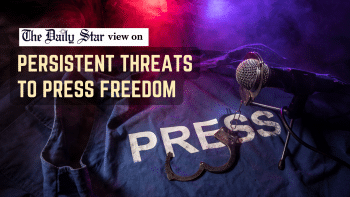
 For all latest news, follow The Daily Star's Google News channel.
For all latest news, follow The Daily Star's Google News channel. 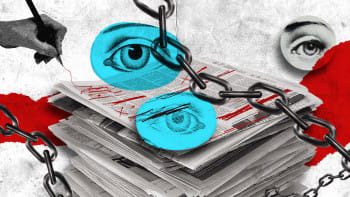
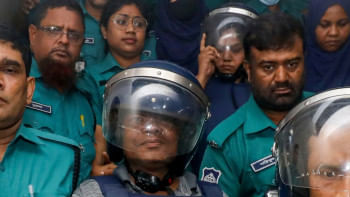




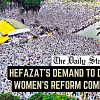

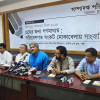

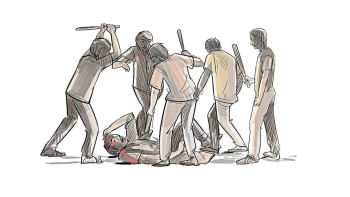
Comments